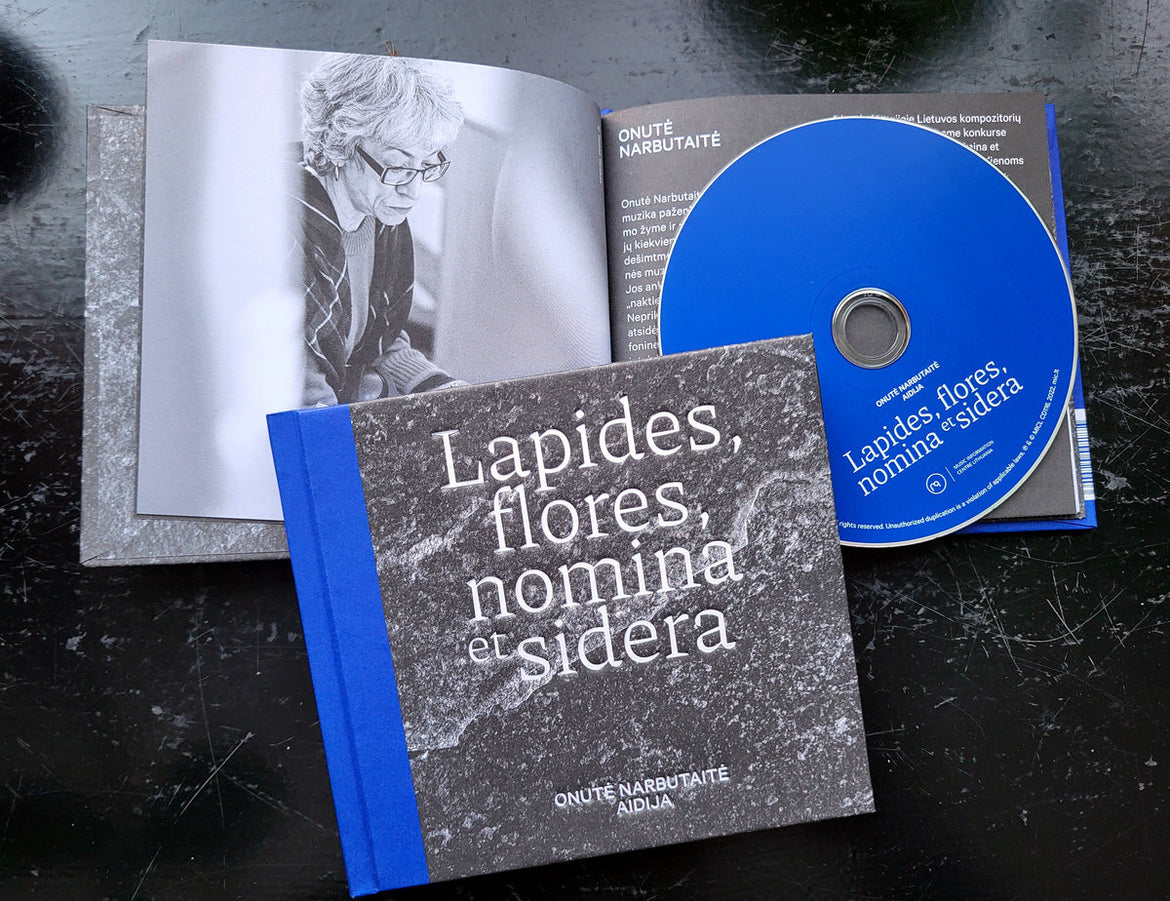The album Lapides, flores, nomina et sidera by Onutė Narbutaitė
Lapides, flores, nomina et sidera / Stones, Flowers, Names and Constellations
For mixed choir, piccolo flute, trumpet, trombone, and tamburo profondo
(2008)
This is a composition of singing words rather than autonomous music and is based on liturgical texts and the Latin names of stones, flowers and constellations. The chanting, the music – it all relates into a continuous structured process. The compositional elements – the psalms, the formula Requiem aeternam and the responsory Libera me (the latter presented in authentic form) – repeated in each part, bring the musical process closer to a ritual reminiscent of liturgical All Souls’ Day processions. However, instead of being performed by a moving, it is performed by a regular standing choir. This static solution was brought about by an initial idea: to perform this composition simultaneously by many different choirs in various parts and courtyards of the Old Town, for both the strolling and the rushing passers-by to hear.
This concept determined a lot of other things too, namely, the stable nature of the sound of quite long sections, founded on one continuous pedal point or monotonously repeated melodic motifs. The music’s non-concert purpose and planting it into the communal city area, as well as the fact that it is more like a prayer or a psalm rather than a “composition” in nature, all led to maximal simplicity in musical expression and its natural interaction with long-lived traditions, which complement the choice and elementary functions of accompanying instruments.
Onutė Narbutaitė
Find it on Bancamp.
Released by Music Information Centre Lithuania.
Supported by the Lithuanian Council for Culture and the Ministry of Culture of the Republic of Lithuania. Partner – Lithuanian Composers’ Union

